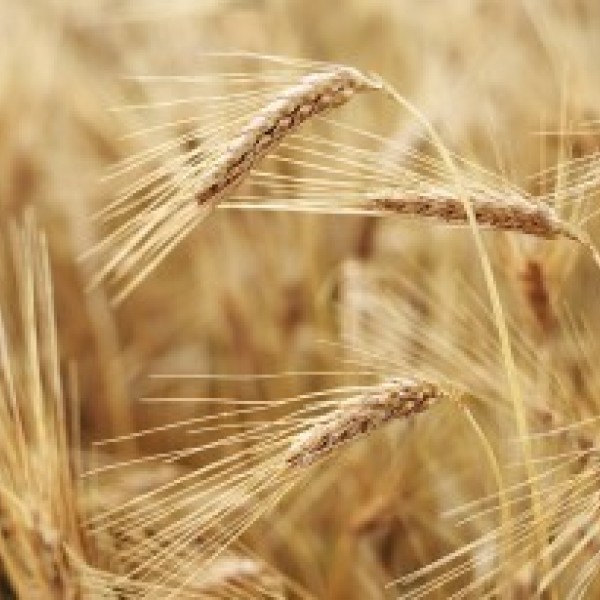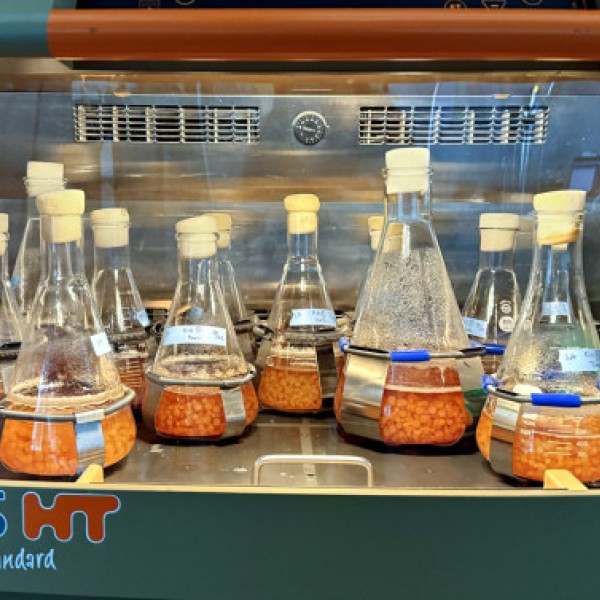To boost the availability of plant breeding tools, a global program centered at Cornell called the Genomic Open-source Breeding informatics initiative (GOBii) has been developing better breeding tools and expanding access to genomic databases. It involves collaboration between Cornell, researchers at the Boyce Thompson Institute researchers and scientists from other agricultural research centers around the world. The program launched in 2015 under an $18.5 million grant from the Bill and Melinda Gates Foundation and will continue operating until October of this year.
GOBii’s goal is to speed up the breeding process for crops that are important in developing regions, in addition to improving yield, nutritional quality, disease resistance, weather resistance and other desirable traits. The program’s new software and databases are now starting to be deployed around the world, and early breeding efforts have indicated that they can slice at least a year off a process that can take upwards of five years.
Currently, it takes many years to produce a new variety from the initial breeding stage to market, said Liz Jones, director of GOBii. “We can use molecular tools to significantly reduce this time” she said.
The program initially focused research efforts on ways to support India, Mexico and the Philippines, and they recently started collaborating with countries in both Eastern and Western Africa. The new databases include information on crops like chickpeas, maize, millets, rice sorghum and wheat.
“A lot of the crop varieties used in South Asia and Africa were developed two or more decades ago,” said Kelly Robbins, assistant professor of plant breeding and genetics in the College of Agriculture and Life Sciences. “Replacing these older varieties with new and improve varieties will have a significant impact on the quality of life of people living in these regions.”
Genomic tools work by combing through databases of genetic data to identify particular “molecular markers,” or small sections of a plant’s DNA, that influence specific traits. A breeder with the right tools and data can examine seeds or seedlings for desirable molecular markers, and then predict whether or not the full-grown plant will have the ideal characteristics—rather than waiting for observational results at the end of the growing season.
“Markers can be very predictive of traits, so you can make breeding decisions much earlier in the breeding cycle, and with more accuracy,” Jones said.
The researchers at GOBii have worked to address two main problems that can prevent breeders in developing regions from accessing more reliable genomic tools. The first pertains to the data itself. While there are records of how well different varieties of crops have performed in field trials, they tend to be siloed in their respective labs and absent from global databases.
“Most of it’s on laptops, Excel spreadsheets or even handwritten notebooks,” Jones said. “We want to collect all we can, because you need a lot of data to predict which new varieties will perform the best in future generations.”
The second problem is that existing software programs used for organizing and analyzing the sea of data are often proprietary, limited to specific crops, and complex to use. So GOBii focused on creating free, open source tools that breeders and farmers could use for any crop.
“We also created tools that visualize the genetic information so it’s easier to comprehend,” said Yaw Nti-Addae, software development group leader for GOBii. Nti-Addae manages the team of 20-some software developers at partner institutions around the world. He said that much of the challenge for developing the software was ensuring it could run on less-powerful hardware.
“We had to figure out how it could run on minimal computing resources, but still scale up to large systems,” he said. “Sometimes dealing with the computing logistics problems was harder than processing the genetic information.”
After the grant ends, GOBii’s work will be integrated into an even bigger project called Excellence in Breeding. Run by CGIAR, a global nonprofit for agricultural innovation, Excellence in Breeding aims to marshal the resources needed to deploy GOBii’s tools and technology. By training people on the ground in key countries, the program will ensure that the tools are utilized in ways that improve farming and local nutrition.
Robbins will also be working with Excellence in Breeding. One of their ongoing challenges is to better understand what traits local farmers find desirable in specific crops—especially since those needs often vary widely from community to community.
“GOBii made great progress in developing the breeding capabilities,” Robbins said. “But getting to routine adoption in those regions is going to be the new focus going forward.”
David H. Freedman is a freelance writer for the College of Agriculture and Life Sciences.
A shorter version of this article also appeared in the Cornell Chronicle.





